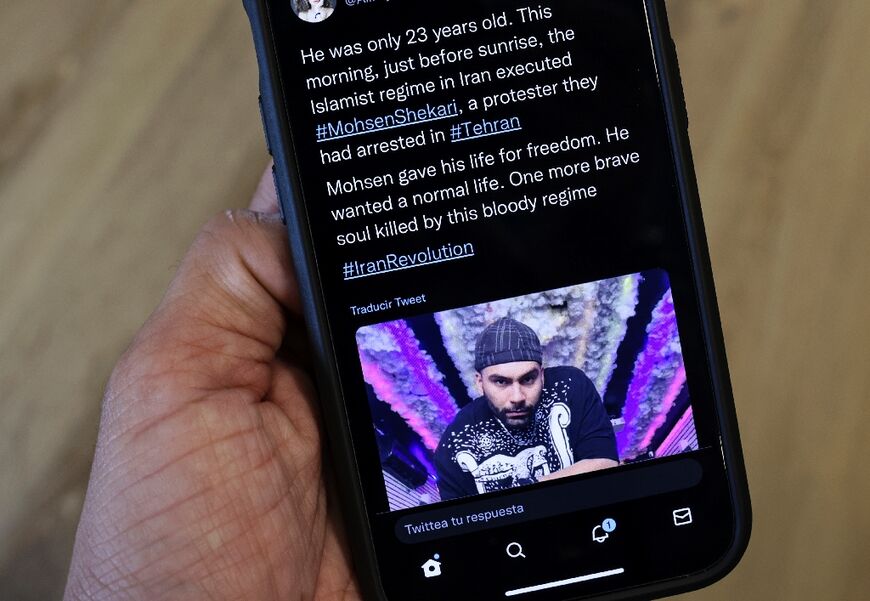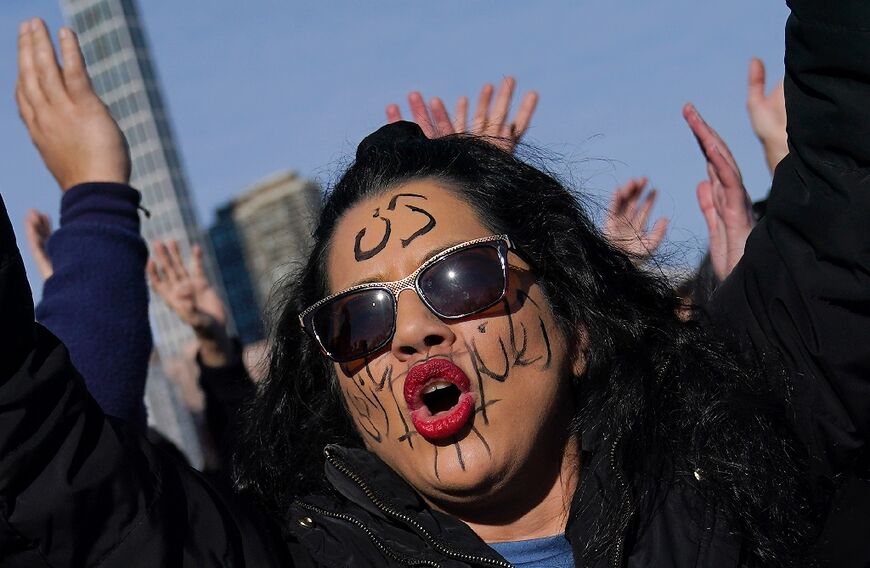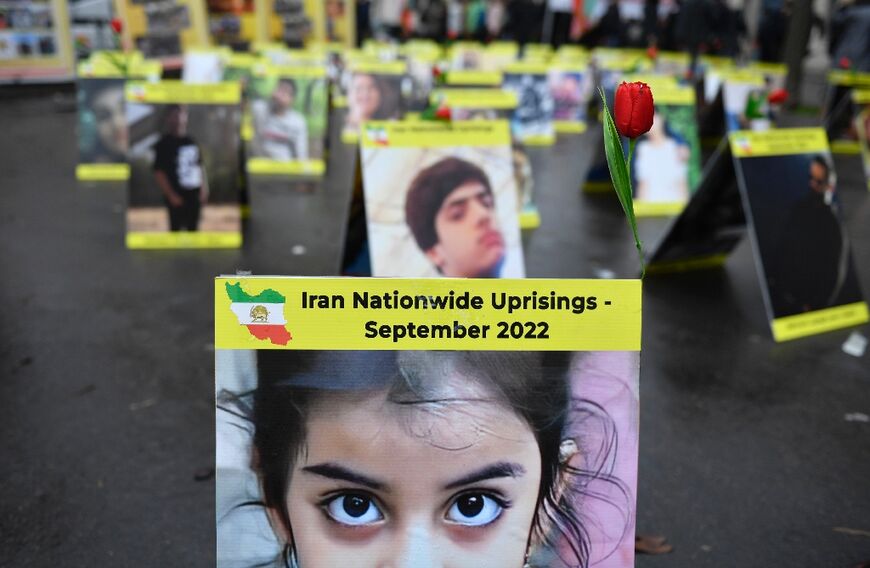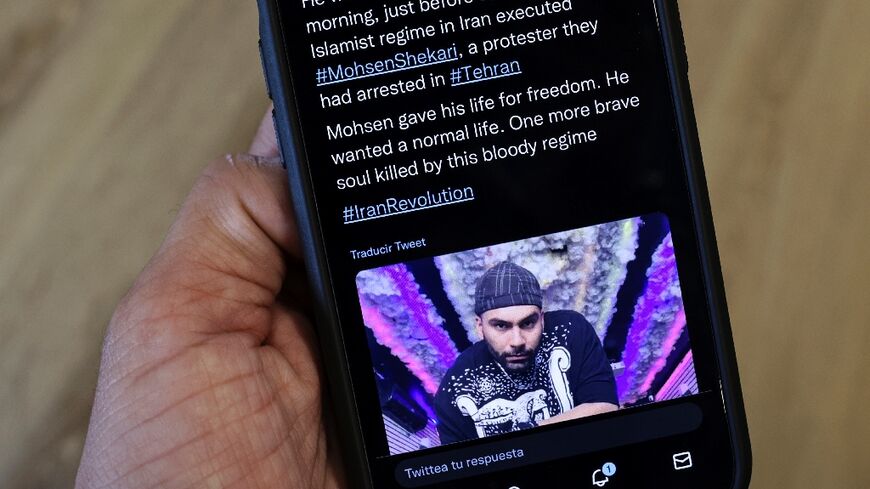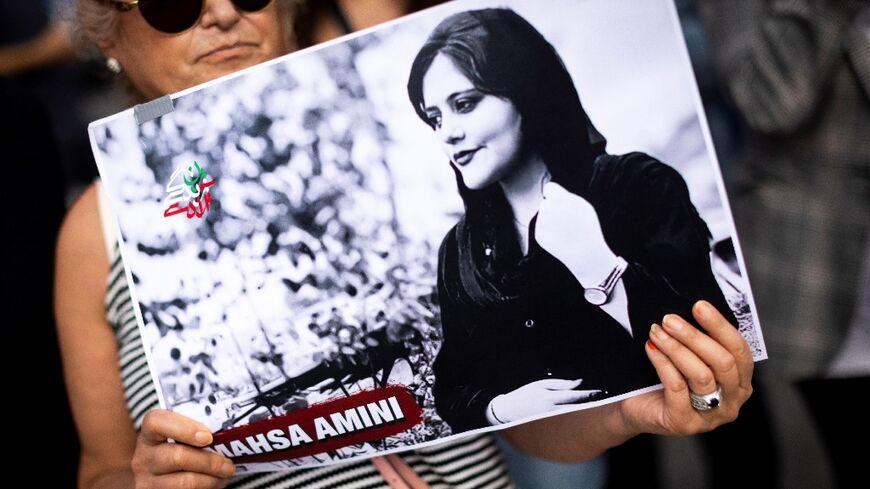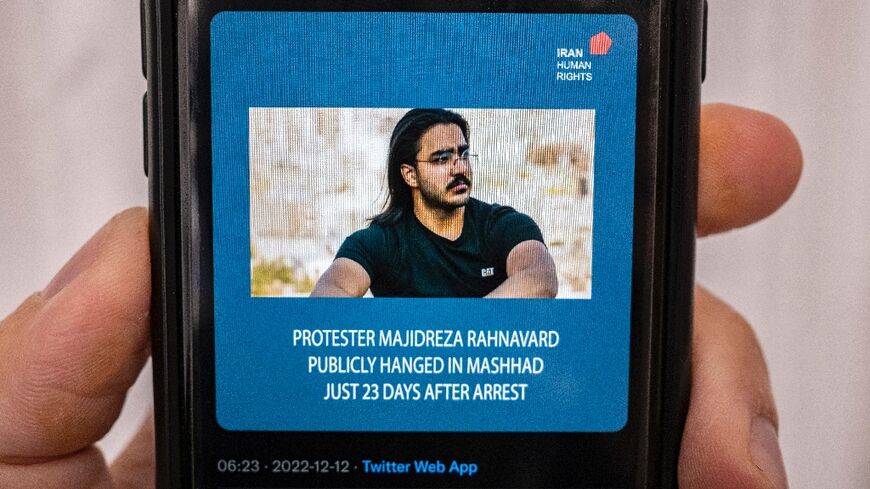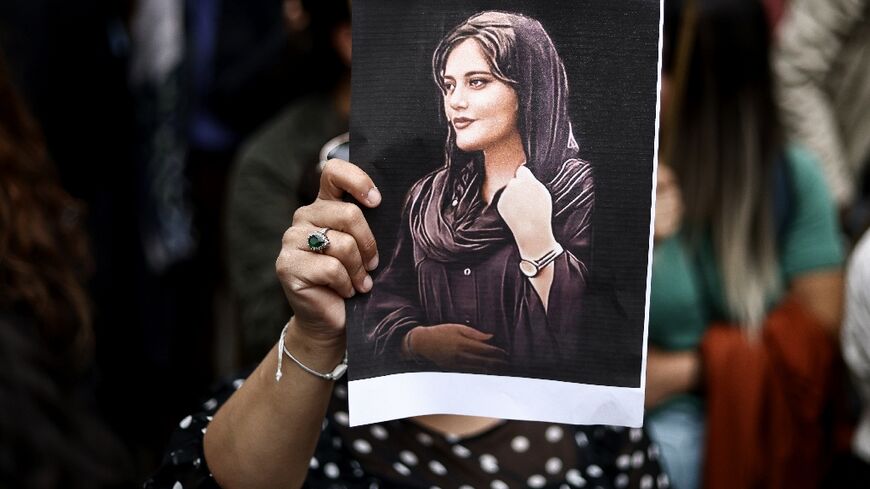Iran hit with sanctions over first protester execution
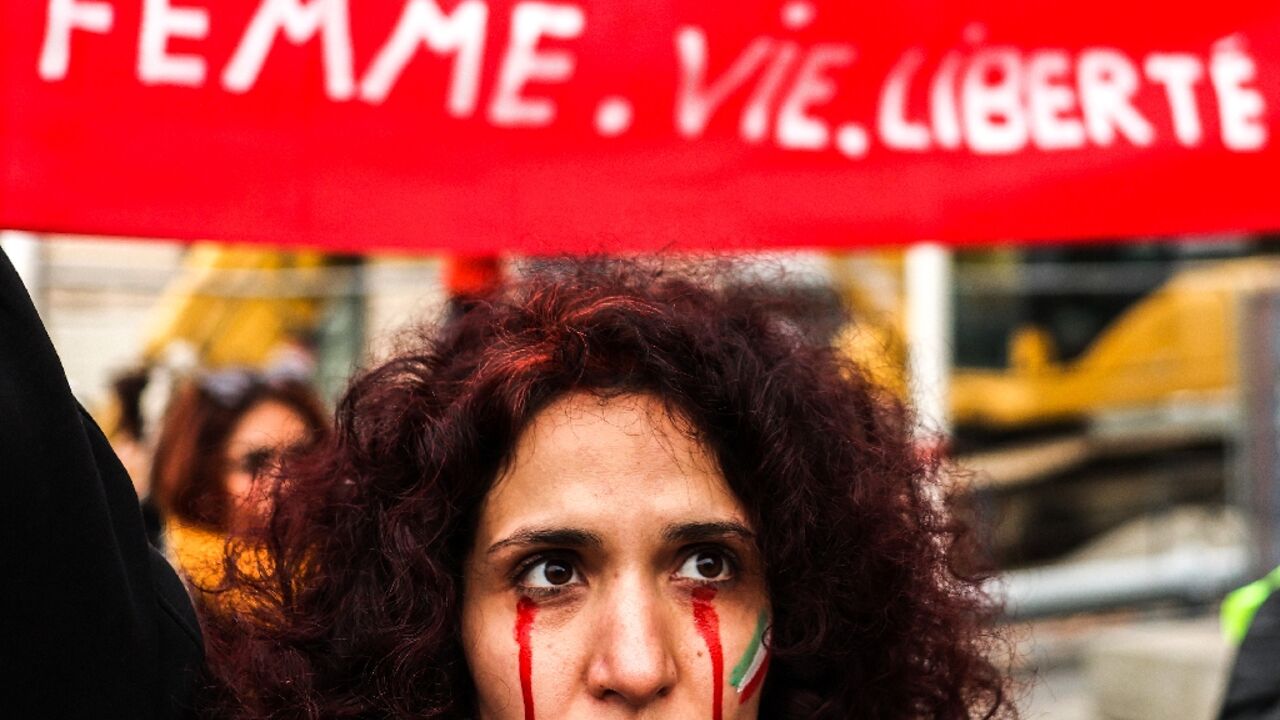
Iran was slapped with new sanctions Friday and activists called for fresh protests after the Islamic republic carried out its first execution over demonstrations that have shaken the regime for nearly three months.
Mohsen Shekari, 23, was hanged Thursday after being convicted of "moharebeh" -- or "enmity against God" -- after what rights groups denounced as a show trial.
The judiciary said Shekari was arrested after blocking a Tehran street and wounding a member of the Basij, a paramilitary force linked to Iran's powerful Islamic Revolutionary Guard Corps.
Iran said it was exercising "utmost restraint" in the face of the protests that flared over the September 16 death of Mahsa Amini, a 22-year-old Iranian Kurd, after her arrest for an alleged breach of the country's strict dress code for women.
Britain announced sanctions against 30 targets, including officials in Iran whom it accused of pursuing "egregious sentences" against protesters.
Canada imposed sanctions on 22 senior members of Iran's judiciary, prison system and police, as well top aides to supreme leader Ayatollah Ali Khamenei.
European diplomats said the EU was also set to impose more punitive measures on Iran over the deadly crackdown that has killed at least 458 people, including more than 60 children, according to Oslo-based group Iran Human Rights (IHR).
Iran said on December 3 that more than 200 people were killed in the unrest, including security forces.
In addition to Shekari, Iranian media reported on Friday the death of a paramilitary and the burial of another, both of whom were said to have been wounded in clashes with protesters.
- Hurried execution -
Shekari's body was buried 24 hours after his execution in the presence of a few family members and security forces in Tehran's Behesht-e Zahra cemetery, the 1500tasvir social media monitor reported.
UN rights chief Volker Turk described the execution as "very troubling and clearly designed to send a chilling effect to the rest of the protesters".
Overnight, protesters nonetheless took to the street where Shekari was arrested, shouting, "They took away our Mohsen and brought back his body," in a video shared by 1500tasvir.
Elsewhere, chants of "Death to the dictator" and "Death to Sepahi" were heard at a demonstration in Tehran's Chitgar district, in reference to Khamenei and the Revolutionary Guards.
1500tasvir said Shekari's execution happened with such haste that his family had still been waiting to hear the outcome of his appeal.
It posted harrowing footage of what it said was the moment his family learnt the news outside their Tehran home, with a woman doubled up in pain and grief, repeatedly screaming his name.
The families of political prisoners put to death in mass executions in 1988 joined in the condemnation.
"Mohsen's execution is a reminder of the loss of our loved ones, who... just like Mohsen, were tried in minutes-long sham trials," they said in a statement published by US-based Human Rights Activists News Agency.
Hamed Esmaeilion, an Iranian-Canadian activist who has organised mass protests in Berlin, Paris and other cities, said more demonstrations would be held at the weekend.
- 'Chilling effect' -
Western governments, which had already imposed waves of sanctions against Iran over the protest crackdown, also expressed anger.
Washington called Shekari's execution "a grim escalation" and vowed to hold the Iranian regime to account for violence "against its own people".
Germany summoned the Iranian ambassador, a diplomatic source said, without providing further details.
Spain condemned the execution "in the strongest terms", calling on Tehran to "respect the fundamental rights of the Iranian population, including freedom of expression and peaceful demonstration".
Iran has defended its response to the protests and accused the West of hypocrisy.
"In countering riots, Iran has shown utmost restraint and, unlike many Western regimes... Iran has employed proportionate and standard anti-riot methods," its foreign ministry said.
"The same is true for the judicial process: restraint and proportionality," it tweeted late Thursday, adding: "Public security is a red line."
According to Amnesty, Iran executes more people annually than any nation other than China.
IHR this week warned the Islamic republic had already executed more than 500 people in 2022, a sharp jump on last year.
At least a dozen other people are currently at risk of execution after being sentenced to hang in connection with the protests, human rights groups warned.
burs-str-dv/ami/jsa


